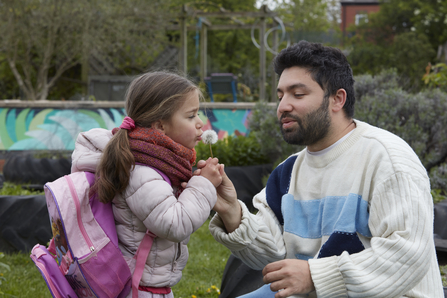Today, The Wildlife Trusts launch a new online hub of step-by-step guides to empower people to take action for nature where they live and work.
The Nextdoor Nature Hub provides free advice for groups who want to start nature recovery projects at a grassroots level.
‘How to’ guides about nature action include advice on:
- How to create a nature recovery group
- Transforming unused land into a wildlife haven
- Working across multiple languages and cultures
- Getting funding and support from businesses
- Publicity, media and events
View the Nextdoor Nature Hub at www.nextdoornaturehub.org.uk. The platform is designed to be accessible to all, using simple language and video explainers. Information is also available in Welsh.
People can also upload stories about what they are doing to help wildlife in their gardens, workplaces, and communities. The Wildlife Trusts want to inspire a domino rally of nature action, where people draw inspiration from others to embark on projects at home.
Nextdoor Nature is The Wildlife Trusts’ flagship community nature recovery programme and is funded by The National Lottery Heritage Fund. Since it started last year, hundreds of groups have been supported to create community gardens and wilder neighbourhoods, building community spirit for people and providing habitats for wildlife.

